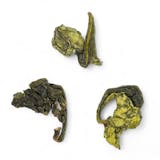Iron Goddess
Iron Goddess
Cherished for its elegance and complexity, Iron Goddess (Tie Guan Yin—铁观音) is one of the most revered oolongs from China’s tea heritage. Its meticulous crafting unlocks a harmony of floral aromatics, smooth texture, and lingering sweetness, making it a timeless favorite among tea lovers.
|
Region 💬The region where tea is grown influences its flavor, aroma, and quality. Different climates, altitudes, and soil types contribute to unique characteristics specific to each area.
|
Anxi County, Fujian, China |
|---|---|
|
Harvest 💬The season when the tea is harvested affects its flavor profile. Early spring teas, known as first flush, are often lighter and more delicate, while later harvests can be bolder and more robust.
|
Mid spring 2024 |
|
Cultivar 💬 Cultivar refers to the specific variety of tea plant used. Different cultivars have distinct flavor profiles, growth patterns, and adaptability to environmental conditions.
|
Tie Guan Yin (camellia sinensis var. sinensis) |
|
Pluck set 💬 The pluck set describes the combination of leaves and buds that are harvested. For example, 'one bud and two leaves' is a common standard that can impact the tea's flavor, texture, and quality."
|
1 bud with 2-3 leaves |
|
Caffeine 💬Caffeine levels vary between tea types and can be influenced by factors like leaf size, processing methods, and steeping time.
|
Medium |
|
Roast 💬Roast level refers to how much heat has been applied to the leaves during processing. A higher roast imparts deeper, toasty notes, while lighter roasts preserve the tea’s natural floral or vegetal character.
|
Light |
|
Oxidation 💬Oxidation is the process of exposing tea leaves to air, which changes their color and flavor. Higher oxidation levels result in darker, more robust teas, while lower levels maintain lighter, more delicate flavors.
|
10%—20% |
|
Fermentation 💬Fermentation is a microbial process used in certain teas like Pu'er to develop complex flavors over time. Higher fermentation levels often produce richer, earthier notes and darker liquor.
|
N/A |
Grade info: We offer 3 different grades of tea: ZL Everyday (premium), ZL Select (ultra premium), and ZL Artisan (luxury).
Learn more about how we grade our teas.
Suggested water temperature
 |
85–90°C |
OR | Allow kettle to cool for 3 minutes before pouring |
Simple brewing method
 |
+ |  |
+ |  |
+ |  |
| 2g (1 tsp) |
tea infuser | 240ml (1 cup) |
4-5 mins |
2 oz | 56.7 g (28 cups)
4 oz | 113.4 g (56 cups)
8 oz | 226.8 g (112 cups)
3.17 oz | 90 g (45 cups)
Couldn't load pickup availability
Share
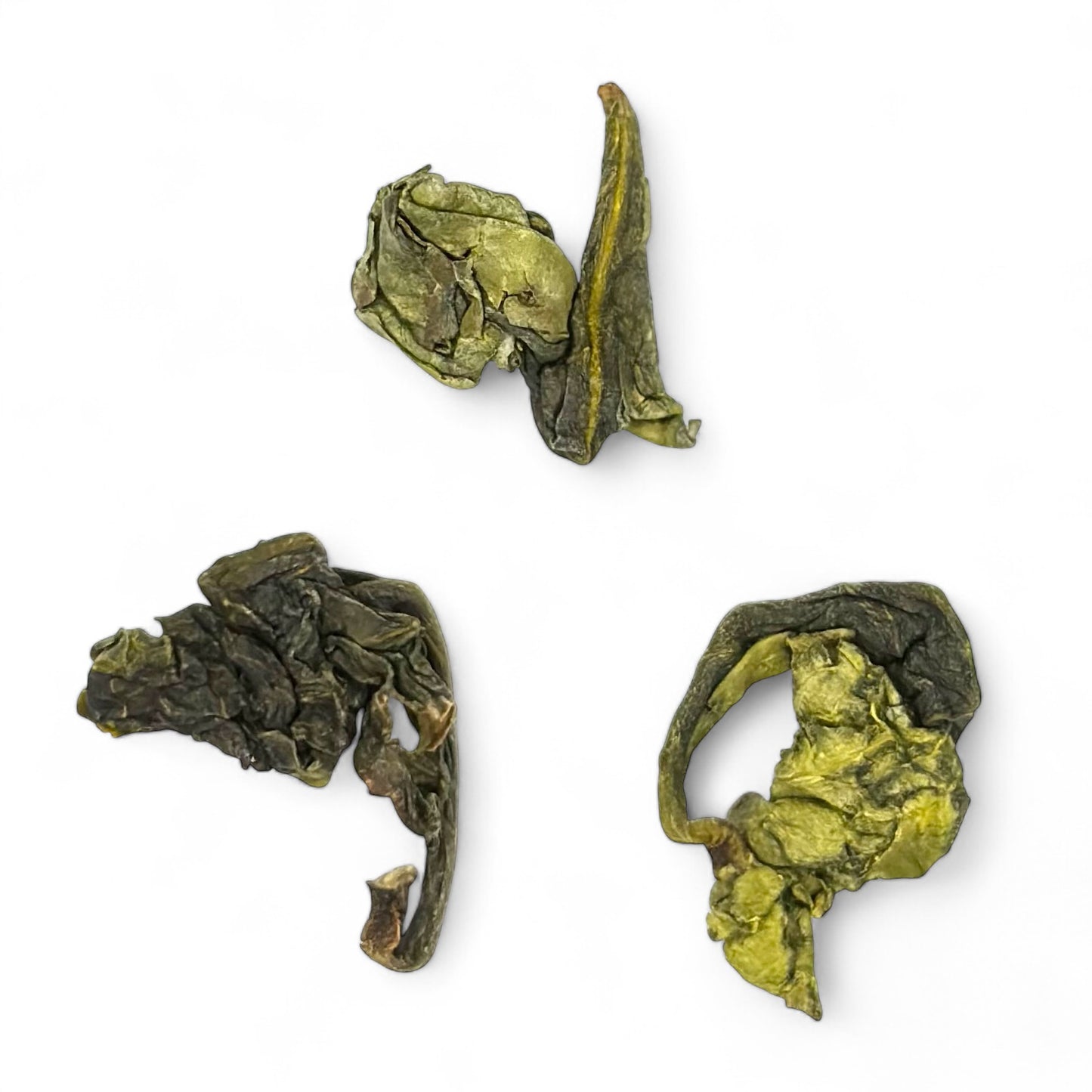
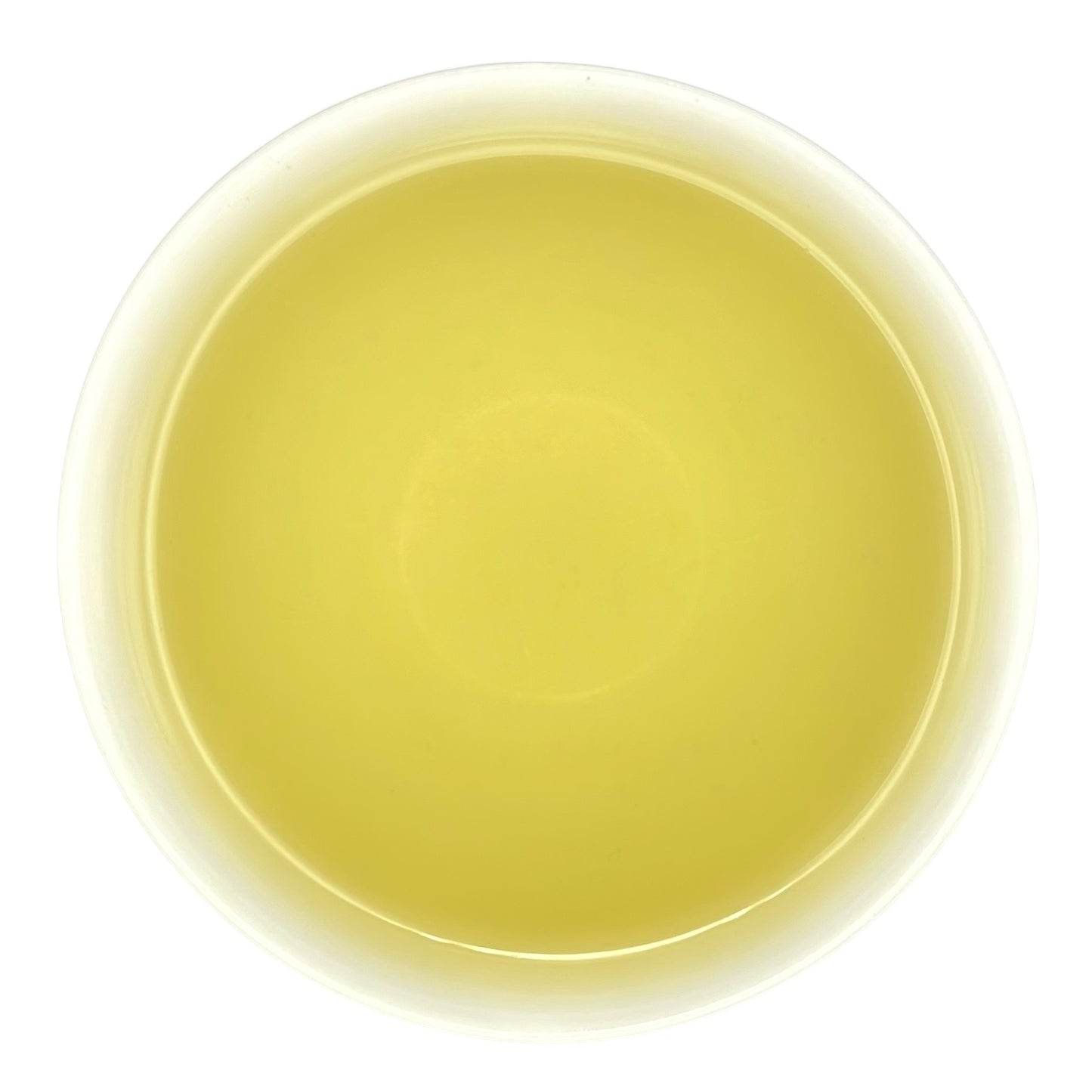
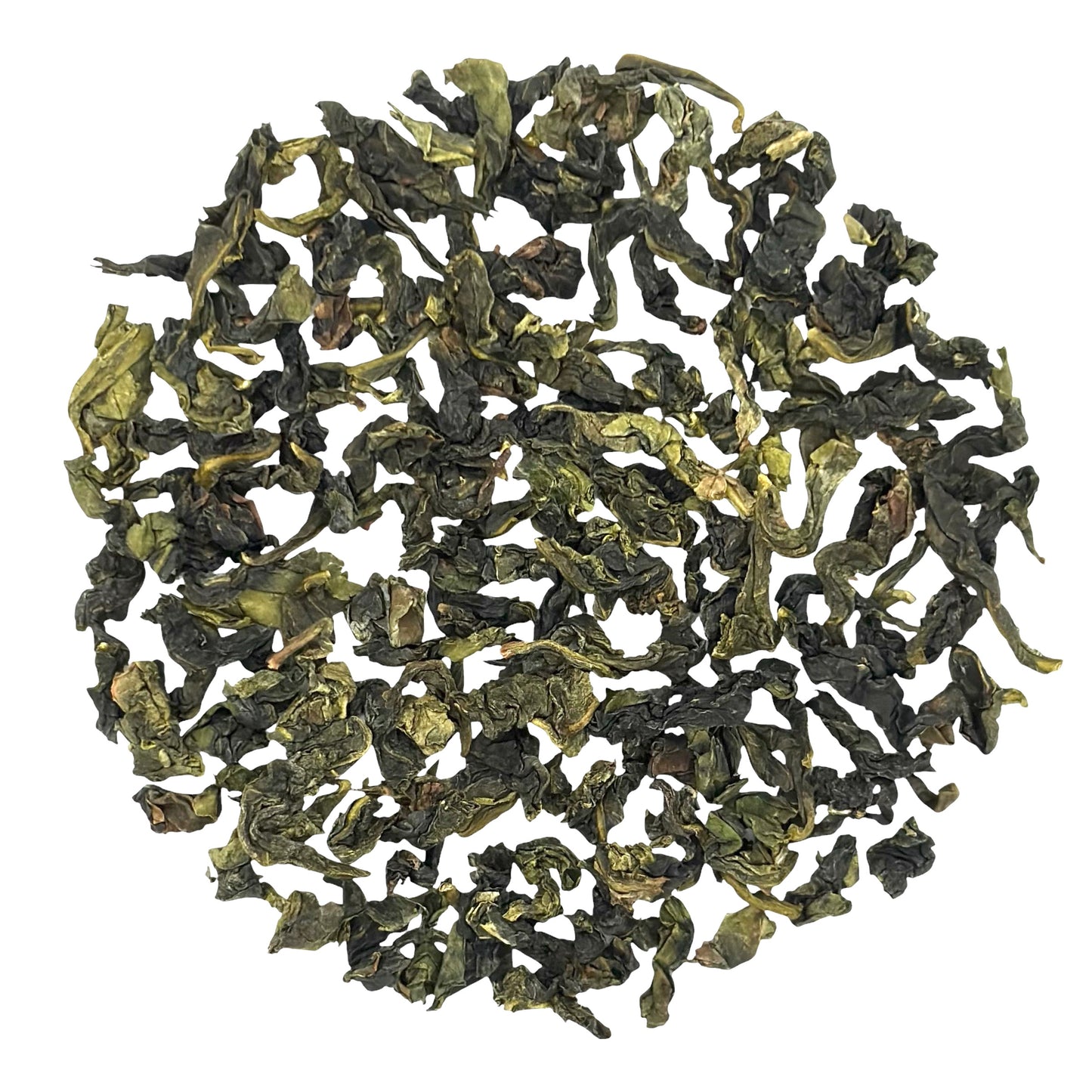
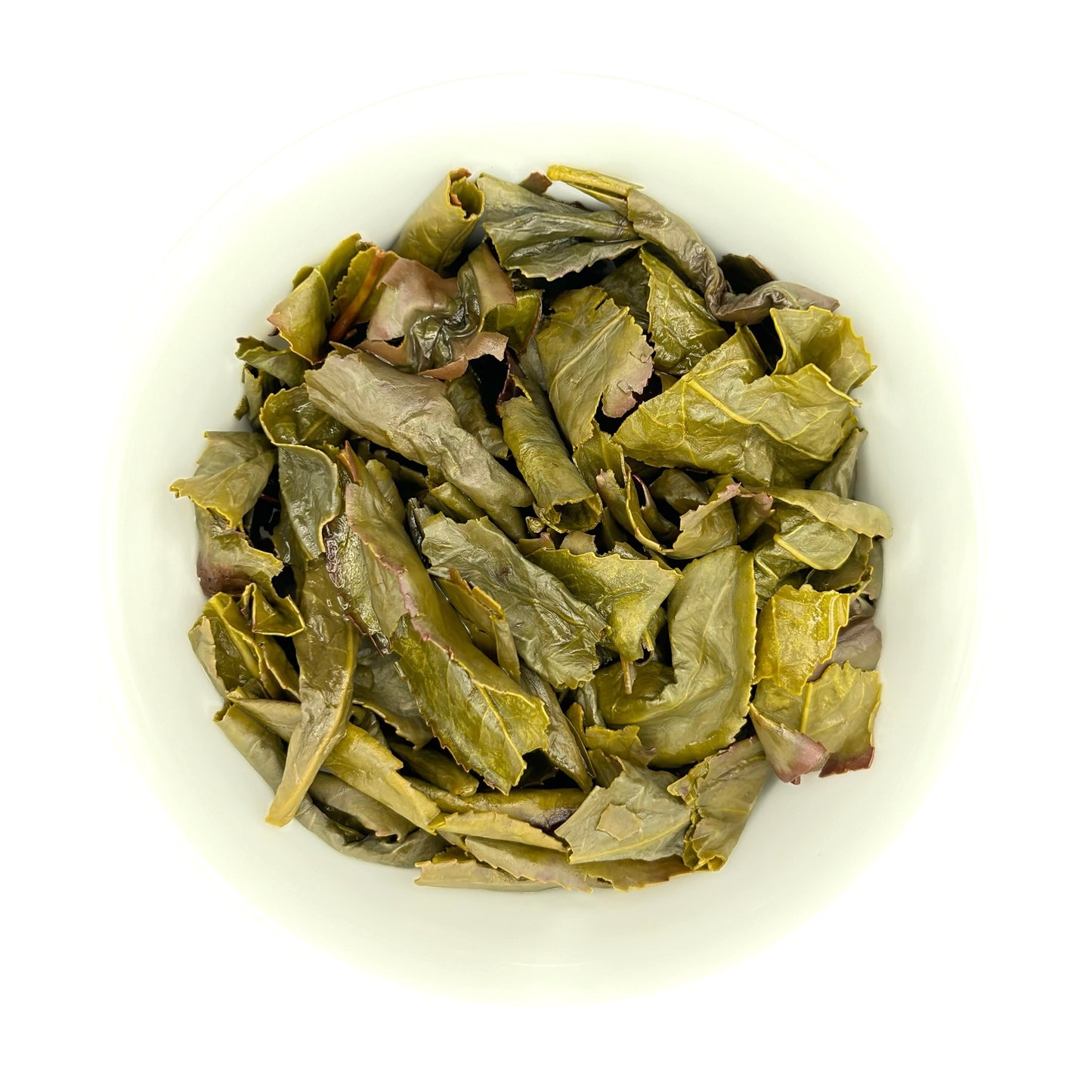
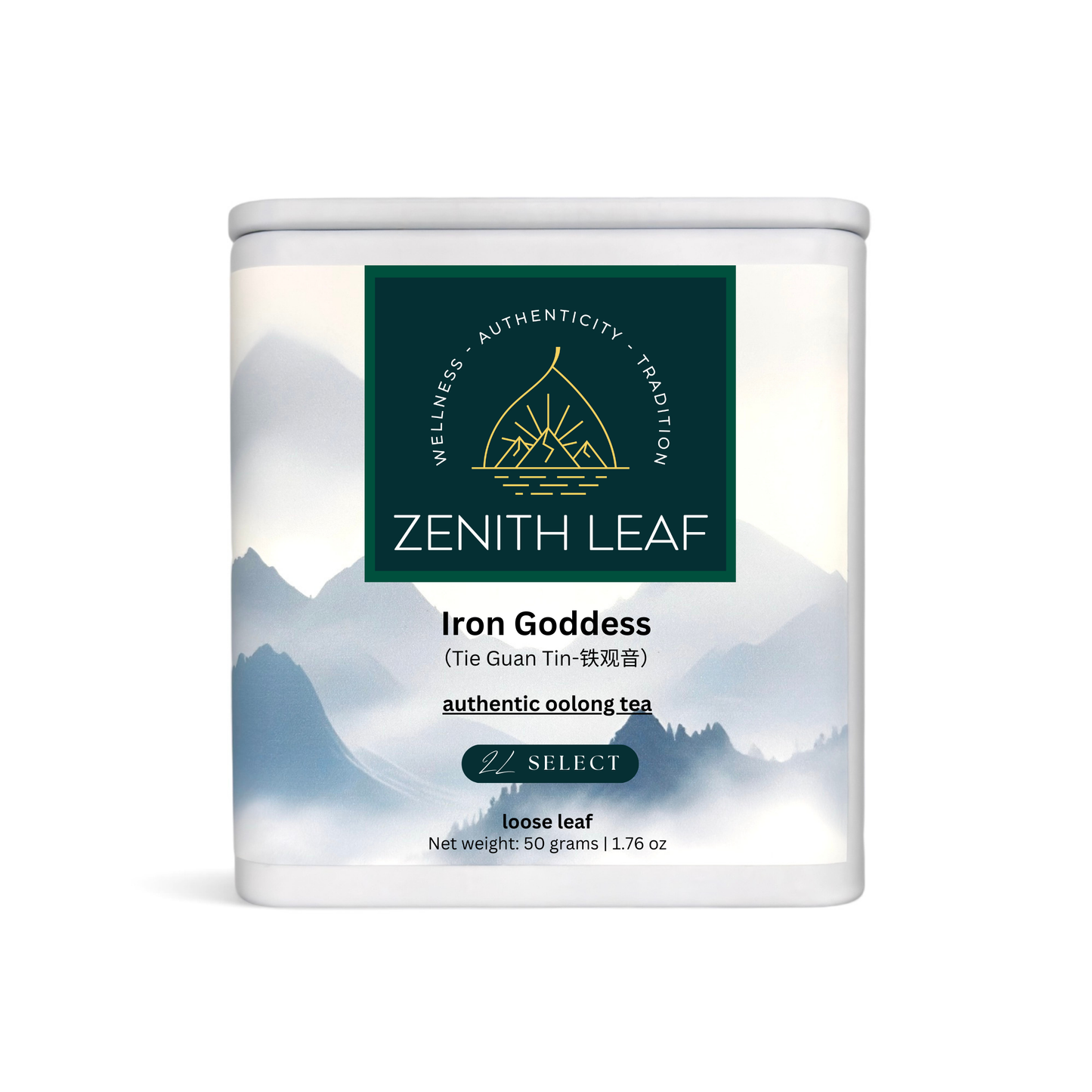

Taste & Aroma
Iron Goddess tea is a celebrated oolong known for its distinctive flavor and captivating aroma. Lightly oxidized varieties offer floral orchid notes, a creamy texture, and a top note of green apple, while roasted versions reveal nutty, caramelized undertones. This balance of bright florals and smooth depth makes it a cornerstone of traditional Chinese tea culture.
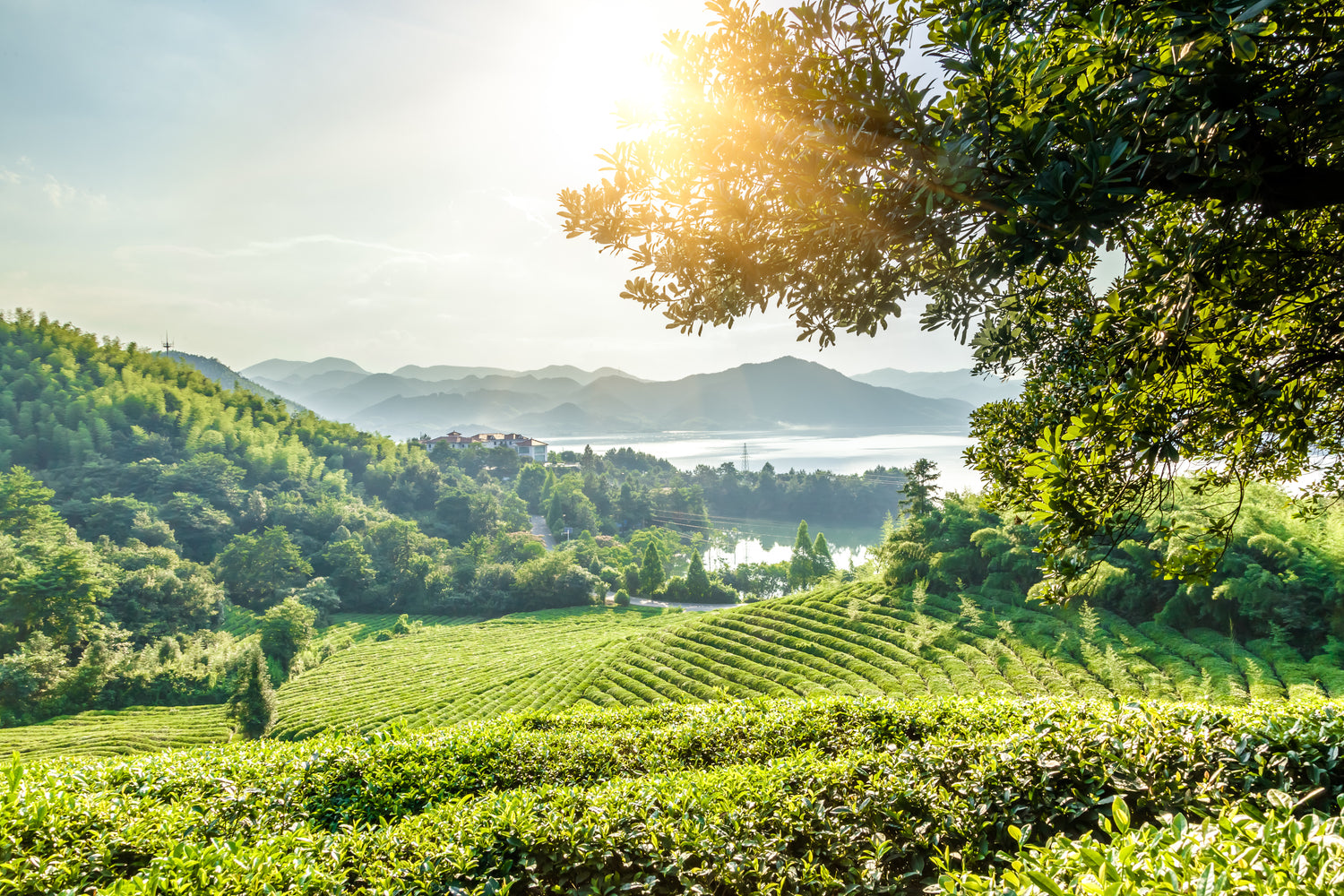
Terroir
Anxi County in Fujian Province is characterized by its steep, rocky terrain and valleys that create natural basins for tea cultivation. These unique landforms, combined with the area's consistent ocean breezes, foster the slow growth of Iron Goddess tea, contributing to its complex flavors and aromas.
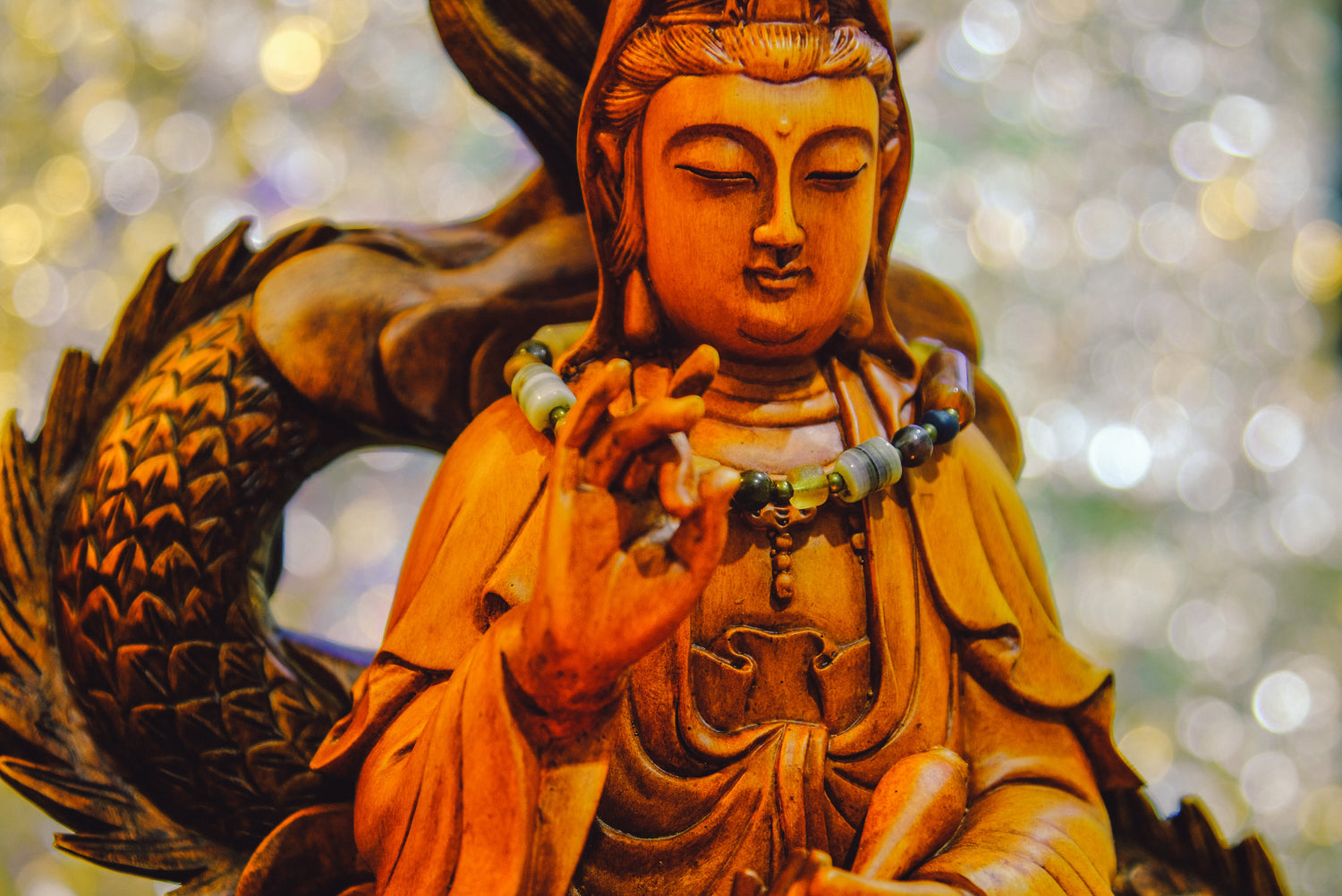
History
Iron Goddess tea was named after Guanyin, the Buddhist goddess of mercy. Its origins trace back to Anxi County, where a farmer was said to have received the gift of this exceptional tea plant in a dream, inspired by his devotion to the goddess.
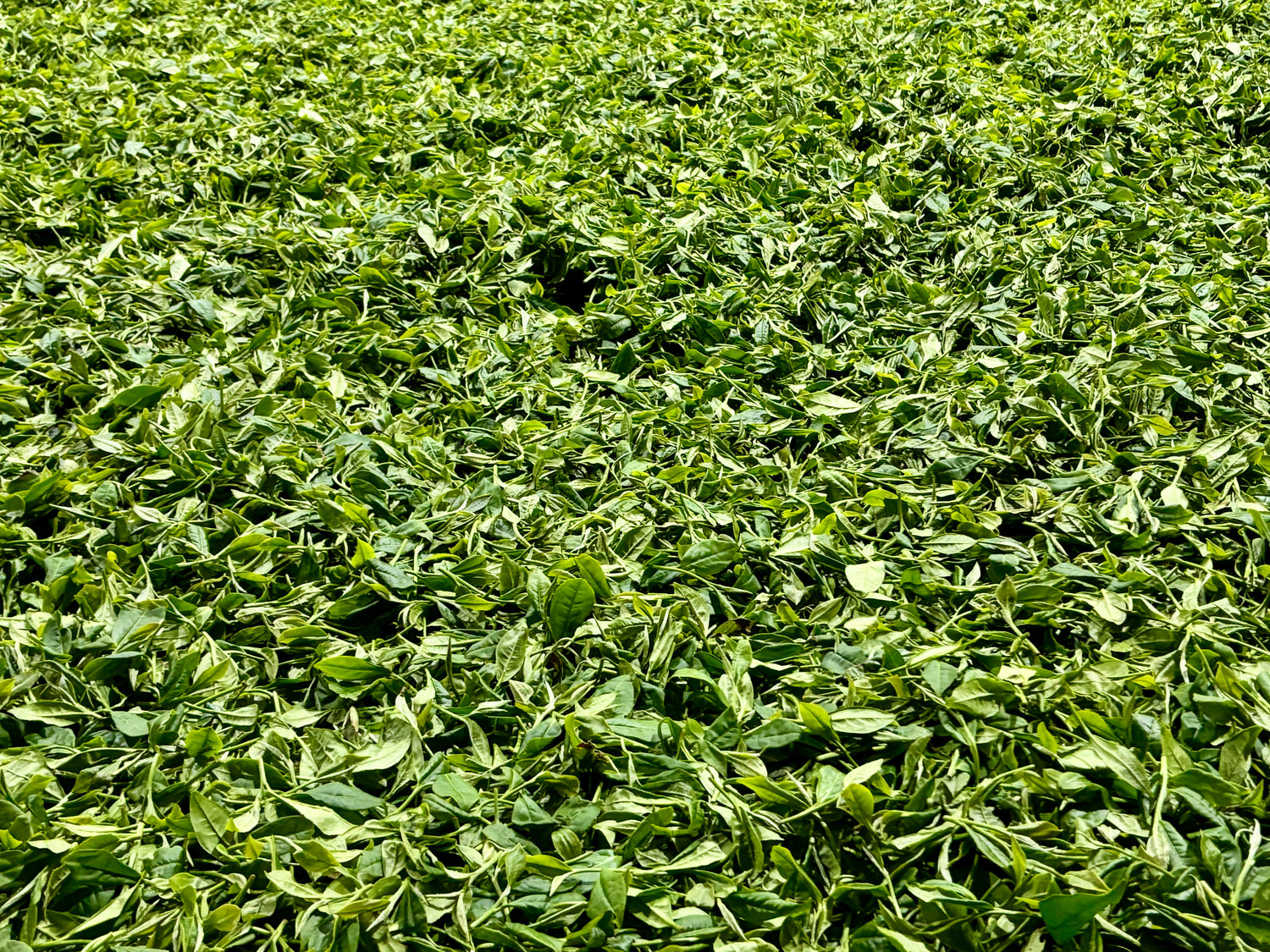
Production
As an oolong tea, Iron Goddess is partially oxidized, striking a balance between green and black tea. Its production involves withering, repeated tossing to bruise the leaves and encourage oxidation, and rolling into tightly curled pellets, with variations in oxidation and roasting creating its diverse flavor profiles.
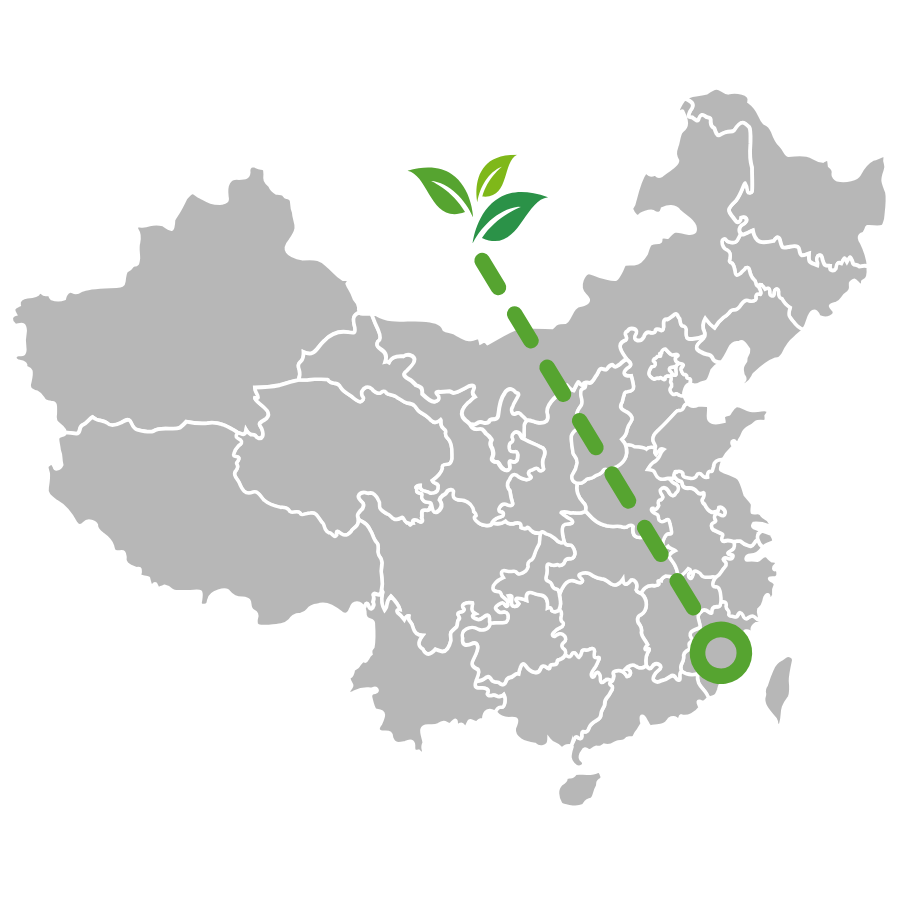
Geography
Anxi County, nestled in the mountains of Fujian Province, is renowned for its stunning landscapes and unique red, iron-rich soil. This region is not only a cradle of traditional Chinese agriculture but also home to ancient stone-carving traditions, including the iconic Thousand Buddha Cliff, where intricate Buddhist sculptures have been preserved for centuries.
The smell and the taste of teas blew my mind. Really nice throat feel, enjoyable, delicious!
I strongly recommend it to everyone!
Iron Goddess Tea has this deep, roasted aroma that pulls you in, and the taste? Smooth, a little floral, with a toasty finish that sticks around. It's so refreshing and I always like looking into the almost neon green color. Definitely a staple in my tea collection.
Every time I brew this, I notice something new. First, it’s floral, then a little nutty, then kind of sweet in the aftertaste. It’s smooth, never bitter, and perfect for a slow, relaxing tea session.
I love how this tea is both refreshing and deep in flavor. The roasted notes balance so well with the natural floral hints. If you’re a fan of oolongs, this is a classic must-try.







